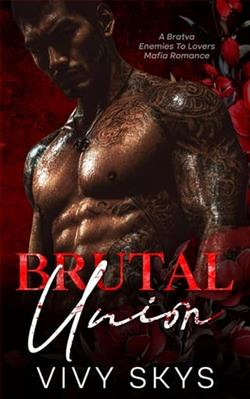Page 13 of The Hallmarked Man
‘Yeah,’ said Strike, watching the video. Having handed over the money in furtive fashion, Plug simply turned and slouched away.
‘Might be payment for services rendered, of course,’ said Kim.
‘What did he do after this?’
‘Went back to his mum’s. Dev’s taken over, so I s’pose’ – Kim yawned – ‘sorry – we’ll find out whether Plug gets any funny deliveries this evening.’
She stretched, raising her arms to the sky and arching her back.Strike looked quickly back at the rota. She was wearing a snugly fitting black sweater.
‘Stiff,’ she said, dropping her arms back to her sides. ‘Too many hours in the car this week. Got any fun weekend plans?’
‘Work,’ said Strike, eyes on the rota. ‘Going to have to cover some of Robin’s stuff, now she’s off sick.’
‘I’m happy to do some of it, if you like,’ said Kim. ‘I haven’t got much on this weekend.’
‘That’s good of you,’ said Strike, looking back at her. ‘It’s a bit tricky otherwise, because Barclay’s away tomorrow and Monday.’
‘I like to keep busy. How was Cornwall?’
‘It was… you know,’ said Strike, eyes back on the rota.
‘Was he old, your uncle?’
‘Nearly eighty.’
‘Still. Never easy when they go.’
‘No,’ said Strike.
‘And you had to drive out to that Mullins woman as soon as you got back, too. How was she, by the way?’
‘Fine,’ said Strike, trying to inject a note of finality into his voice.
Kim took the hint and stood up. She was good at taking the hint.
‘I’ll be off, then. Email me the hours you need me this weekend, and I’ll be there.’
‘Thanks,’ said Strike. ‘Appreciate it.’
Kim left. After another twenty minutes fiddling with the rota, his eyes itching with tiredness, Strike locked up the office and headed upstairs to his attic flat, to make himself a solitary dinner.
He did his best to ignore the mounting pain in his hamstring while cooking himself a steak and vegetables, but his deepening depression was harder to dismiss. After sitting down at his small Formica table, his thoughts moved to the dilemma that had been dominating his thoughts for many months now, latterly becoming acute, and in no way diminished by his miserable interlude in Cornwall. He’d discussed the matter with nobody because he wanted neither advice nor comfort. Indeed, as far as he was concerned, there’d been quite enough unwelcome interest in the subject already.
When a man is forced to recognise that, in spite of his best efforts to prevent it happening, he’s fallen in love with the woman with whom he’s built a thriving business, and who he considers his best friend; when that woman has been in a stable, happy relationship withanother man for over a year; when the first man knows he risks both business and friendship if he makes an open avowal of his feelings, yet has decided he doesn’t want to live with the knowledge that he might have had what he wanted if only he’d spoken, then that man must determine how, when and where the long-resisted discussion is to take place. Strike had been mulling over this problem ever since he’d made his first sober attempt to breach the barriers he himself had erected between himself and Robin Ellacott, by telling her that Charlotte had been certain he was in love with his business partner, and had mentioned the fact in her suicide note.
For the umpteenth time, as he sat eating his solitary meal, Strike recalled Robin’s reaction when he’d uttered these words. ‘Stunned’ perhaps described it best. Stunned, and then flustered. The conversation had been cut short by the appearance at the office of Ryan Fucking Murphy. The next time Strike and Robin had come face to face, there’d been a definite tinge of self-consciousness on Robin’s part that hadn’t been there before.
Such behaviour was, of course, open to widely divergent interpretations. Perhaps it showed he had grounds for hope. Strike had been alert in the days following his oblique admission for any uptick in the frequency of Robin’s mentions of Murphy, or references to how happy she was with the CID officer, because these would surely be the obvious way to warn Strike that further mention of the word ‘love’ between them would be unwelcome, but he’d detected no such increase. On the other hand, she’d made no attempt to return to the conversation, even obliquely or in jest.
Sometimes since, when tallying up promising signs, he’d reminded himself that embarrassment didn’t necessarily denote revulsion, that Robin had once uttered the words ‘I don’t want to lose you’ and that she’d freely told him he, too, was her best friend. He recalled her wedding day, when she’d run out on her first dance to follow and hug him. Yet in his darker moments he relived those fatal, drunken few seconds outside the Ritz a little over two years previously, when he’d moved to kiss her and seen a clear refusal in her expression. He was eight years older than Murphy, and while he knew, without vanity, that he was very attractive to certain kinds of women, on the available evidence, he wasn’t physically what Robin liked. Both her current boyfriend and her ex-husband (Matthew Fucking Cunliffe) had been slim, fit, classically handsome men, whereas Strike resembled a broken-nosedBeethoven and was still, in spite of intermittently strenuous efforts, over a stone off his ideal weight, which in itself had to be calculated to accommodate the loss of half his leg.
And Robin had hung up as soon as he’d mentioned Charlotte today. Why? Because she feared hearing, again, that Charlotte had thought him in love with her? Because she wanted to shut down any further discussion of the subject?
His steak finished, and feeling, if anything, worse, Strike went to the holdall he’d brought back from Cornwall and extracted the shoe box containing Ted’s two old hats, the leather-bound fisherman’s cosh and the photographs Strike had removed from the familiar, now mournfully empty house.
He hadn’t cried at Ted’s funeral, in spite of the invisible, weighty slab that had lain on his chest throughout. His uncle had become increasingly frail and confused after the death of his wife two years previously, but even as Strike had nodded at the bromides delivered by well-wishers at the crowded wake – ‘perhaps it was for the best’, ‘he never wanted to be a burden’, ‘it’s what he would have wanted, going quickly’ – he’d found it hard to disguise a latent antagonism. They all appeared to have forgotten who Ted really was; not the shambling figure who’d got lost one morning on the beach he’d once known better than his own face, but the hero of Strike’s youth, his model of a man. Strike had been brought closest to tears when, in a welcome interlude at the bar with his oldest friend, Dave Polworth, the latter had raised a pint of Cornish ale to the ceiling and said,
‘Proper man, Ted.’















